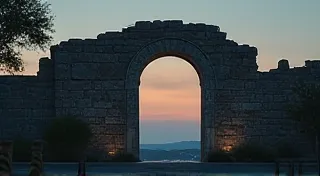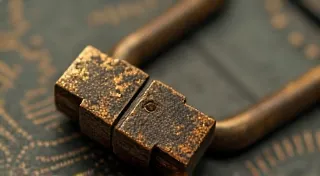The Shadow of Assumption: Why Security’s Greatest Flaw is Belief
There's a particular resonance to the sound of an antique accordion – a wheezing sigh of bellows, the tang of aged wood and leather, the complex, slightly imperfect harmony of reeds vibrating in response to a player's touch. It’s a sound that speaks of craftsmanship, of journeys taken, of music carried across generations. I remember finding my grandfather's old Hohner Excelsior in the attic – a forgotten relic whispering stories of wartime dances and quiet evenings. He rarely spoke of those times, but the accordion, in its own way, was a powerful storyteller. It embodied a perceived security – a connection to the past, a tangible link to a man I barely knew.
That feeling of security, that belief in something's inherent reliability, is a powerful and often deceptive force. It's something I've observed acutely through my fascination with lock picking, a practice often misunderstood, but incredibly revealing about the vulnerabilities baked into the systems we trust.
The Illusion of Safety
We build walls, we install alarms, we rely on passwords, all in the pursuit of security. We *assume* that these measures are impenetrable, that they offer a sufficient barrier against the things we fear. And for a time, that assumption holds. But the moment we stop questioning, the moment we cease to analyze and probe, we create the very opening that will be exploited. The accordion in the attic – it seemed secure, nestled amongst forgotten memories. Yet, with a little understanding of its mechanics, a careful application of knowledge, its perceived security could be bypassed.
Consider the evolution of locks themselves. Early pin tumbler locks, once considered marvels of engineering, were based on a simple, elegant design. They were effective in their time, but their underlying principles were vulnerable. The early locksmiths, much like the skilled artisans who built accordions, were masters of their craft. They understood the intricacies of their mechanisms, the subtle imperfections that could be leveraged. It’s this knowledge, initially intended to *improve* security, that ultimately revealed its potential weaknesses.

The Craft of Lock Picking: More Than Just a Skill
Lock picking, at its core, isn't about breaking into things. It’s about understanding how things work. It's a puzzle, a tactile exploration of mechanics, a silent conversation with the locksmith who originally crafted the lock. It’s a practice that demands patience, precision, and a deep appreciation for the intricacies of design. The tools themselves – the picks, the tension wrenches – are surprisingly elegant, miniature instruments designed to manipulate complex systems.
The act of manipulating a lock pick, feeling the subtle clicks and binding, is remarkably similar to the feeling of adjusting the reeds on an accordion to bring them into perfect tune. Both require a delicate touch, an understanding of resonance, and an ability to feel for the slightest deviation from the ideal.
Many perceive lock picking as a nefarious activity, and understandably so. But when approached with respect and a genuine desire to learn, it becomes a profound exercise in critical thinking and an appreciation for the ingenuity, and the inevitable flaws, inherent in all human creations. The ethical considerations are paramount. Recreational lock picking should *only* be practiced on locks you own or have explicit permission to manipulate. The knowledge gained is valuable, but responsibility dictates its proper application.
Complacency Breeds Weakness
The overreliance on perceived security is a constant danger. We become complacent, assuming that because a system has worked in the past, it will continue to do so. We stop questioning, stop probing, stop seeking out potential weaknesses. This complacency breeds weakness, creating an environment ripe for exploitation.
Think about software security. We build layers of encryption, we implement complex authentication protocols, and yet, vulnerabilities are constantly being discovered. Why? Because we, as developers and users, often fall into the trap of assuming that our systems are impenetrable. We build walls, but we forget to check for the cracks.
The analogy extends beyond technology. Consider physical security. We install deadbolt locks, we build fences, and yet, determined individuals can often find ways around these obstacles. It’s not simply about the strength of the lock, but about the overall design of the environment, the awareness of potential threats, and the constant vigilance against complacency.
The Accordion's Lesson
My grandfather's accordion, a symbol of a bygone era, taught me a valuable lesson. It wasn’s the accordion itself that held the story, but the understanding of its construction, its history, and the journey it had taken. Similarly, it’s not the existence of security measures that truly matters, but the willingness to question them, to understand their limitations, and to constantly seek out potential vulnerabilities.
The craft of lock picking isn't about defeating security; it’s about illuminating its fragility. It’s a reminder that true security isn’t a static state, but a continuous process of assessment, adaptation, and improvement. It is a recognition that even the most meticulously crafted systems are ultimately human creations, subject to human fallibility.

Beyond the Lock: A Wider Perspective
The principles learned through lock picking – the emphasis on observation, the meticulous attention to detail, the understanding of underlying mechanics – are applicable far beyond the realm of physical security. They can be applied to software development, to risk management, to problem-solving in any field. It's about developing a mindset of continuous inquiry, a willingness to challenge assumptions, and a deep appreciation for the complexities of the world around us.
The next time you encounter a system, any system, whether it’s a lock, a piece of software, or a business process, take a moment to look beyond the surface. Question its underlying assumptions. Probe for potential weaknesses. Embrace the spirit of inquiry, the willingness to challenge the status quo. For it is in this spirit that we can truly begin to understand the fragility of security and the constant need for vigilance.






